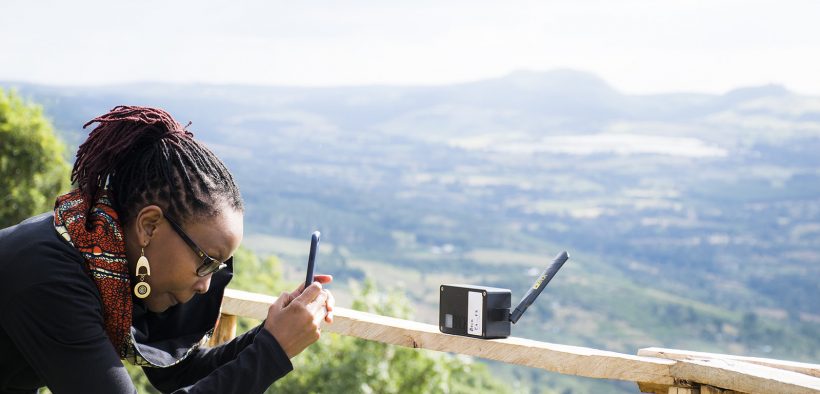Can Technology Aid the Impoverished?

If we can turn more of this innovation to address the needs of the poor and marginalized, we will reduce a great deal of the fear that has driven history for so long.
(By Jesmane Boggenpoel) Technology is a powerful tool that can aid in appeasing conflict because it can reduce the fear of “lack,” (the fear of not having enough) and extend certain resources; therefore, turning lack into plenty.
If we utilize technology to tackle issues related to poverty and other seemingly unmanageable problems affecting the “first world” and emerging markets, including health, agriculture, water, racial reconciliation, and the flow of donor funding, we can build a better future for everyone.
How Tech Can Alleviate Poverty
For example, when we can desalinate massive quantities of water for pennies per gallon and provide inexpensive ways for hundreds of millions of subsistence and small-scale farmers to raise enough crops for their families, the “age-old” fears of a lack of water and food are put at ease. When we have the ability to provide a cost-effective, portable and easy-to-use diagnostic test to millions of people, we can reduce the pressure on the health-care system and lessen the fear of lack of care.
There are many other ways in which technology can be utilized to help those in need, including the unemployed, refugees, poor farmers, the sick and shut in or those who simply do not have access to simple necessities. The question that many ask is, “Can technology truly be used to build a better future for those being left behind?” The answer is YES.
Sometimes the only solution that we have requires using existing technology in novel ways. For example, OtheReality, a nonprofit founded by a sixteen-year-old high school student which uses virtual reality to help you see life through the eyes of the “other”. This unique technology allows you to experience the lives of people on the other side of the divide while promoting empathy and reconciliation between groups who may be at odds with one another.
OtheReality hopes that the technology will soon be a part of school’s all around the globe with the mission to advocate for positive social change and cultural understanding all while using technology to fight the ridiculous amount of prejudice and intolerance in the world.
In addition to OtheReality, there are new waves of technology that are pouring from innovators’ minds that can help address and even solve many of the “lacks” that the world faces. Sadly, much of the technological innovation created today is designed to only address the needs of the wealthy, middle class as well as those of large corporations.
Tech Can Increase Connectivity, Solutions and Innovation
If we can turn more of this innovation to address the needs of the poor and marginalized, we will reduce a great deal of the fear that has driven history for so long. One positive step towards this is bringing together people from different cultures, educational backgrounds, industries, and other factors. This is what really helps push innovation: multiple perspectives. The mixture of ideas and insights encourages people from all walks of life to see things in new ways; therefore, developing new solutions.
The take away from this is to remember that across all emerging markets, there are common issues regarding health, education, agriculture and more. Once a solution is found in one region of the world, it can be scaled and brought to other parts of the world. We must encourage those who develop, support and deploy the technology to remember that it serves everyone as a whole best when it respects humanity and enables people of all classes to have the same benefits. No matter what the technology is built to do, it should unite rather than elevate one group above another.
Jesmane Boggenpoel, debut author of My Blood Divides and Unites is an experienced business executive and former Head of Business Engagement for Africa at the World Economic Forum in Switzerland. She has served on the boards of various South African and international organizations. She is a Chartered Accountant and holds a Master’s degree from Harvard University’s JFK School of Government.
Jesmane was honored as a Young Global Leader of the World Economic Forum, is a Harvard Mason fellow and a shareholder and founding board member of African Women Chartered Accountants Investment Holdings. Boggenpoel has extensive global experience having studied and worked on three continents, as well as traveling to over 65 countries.















